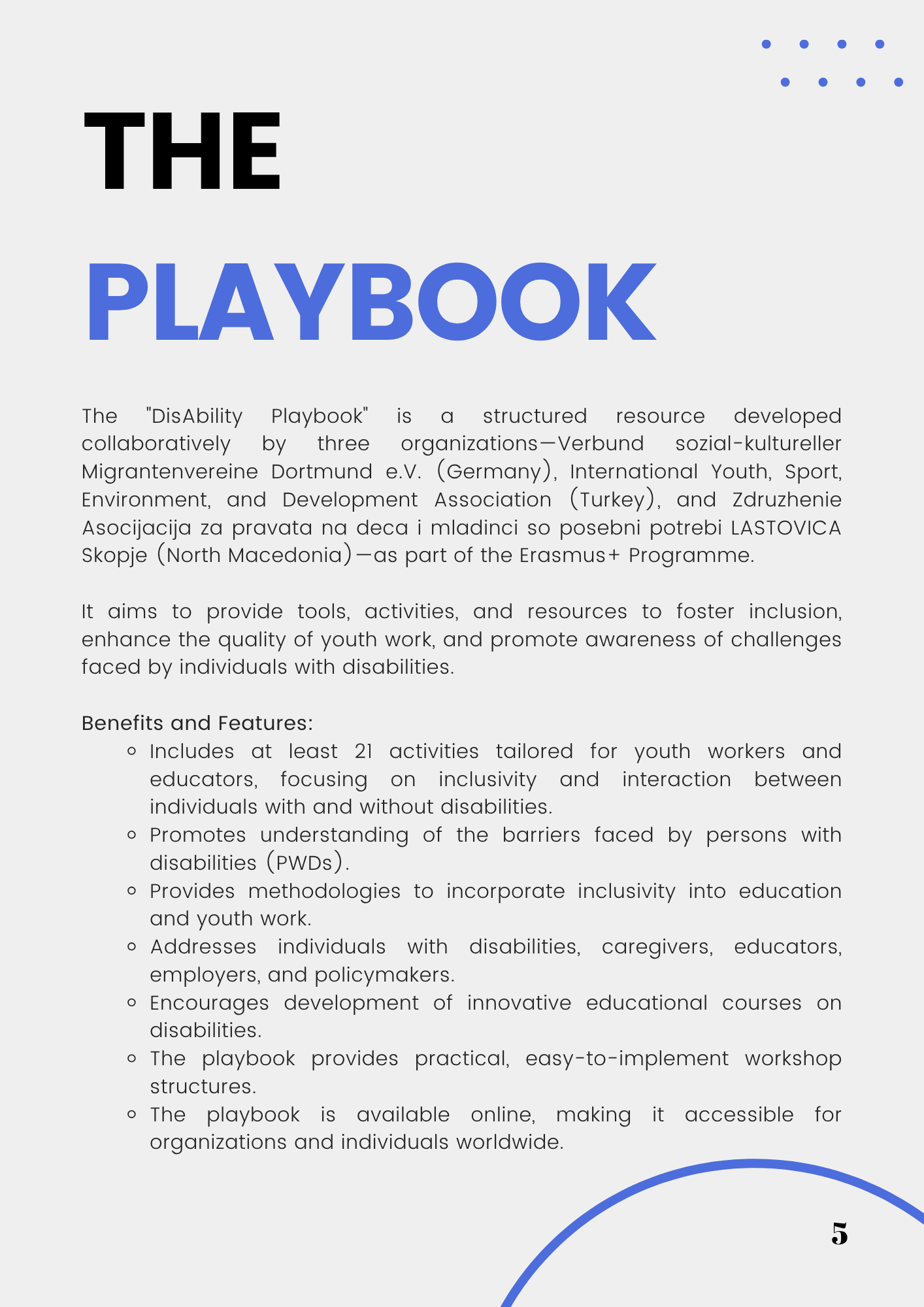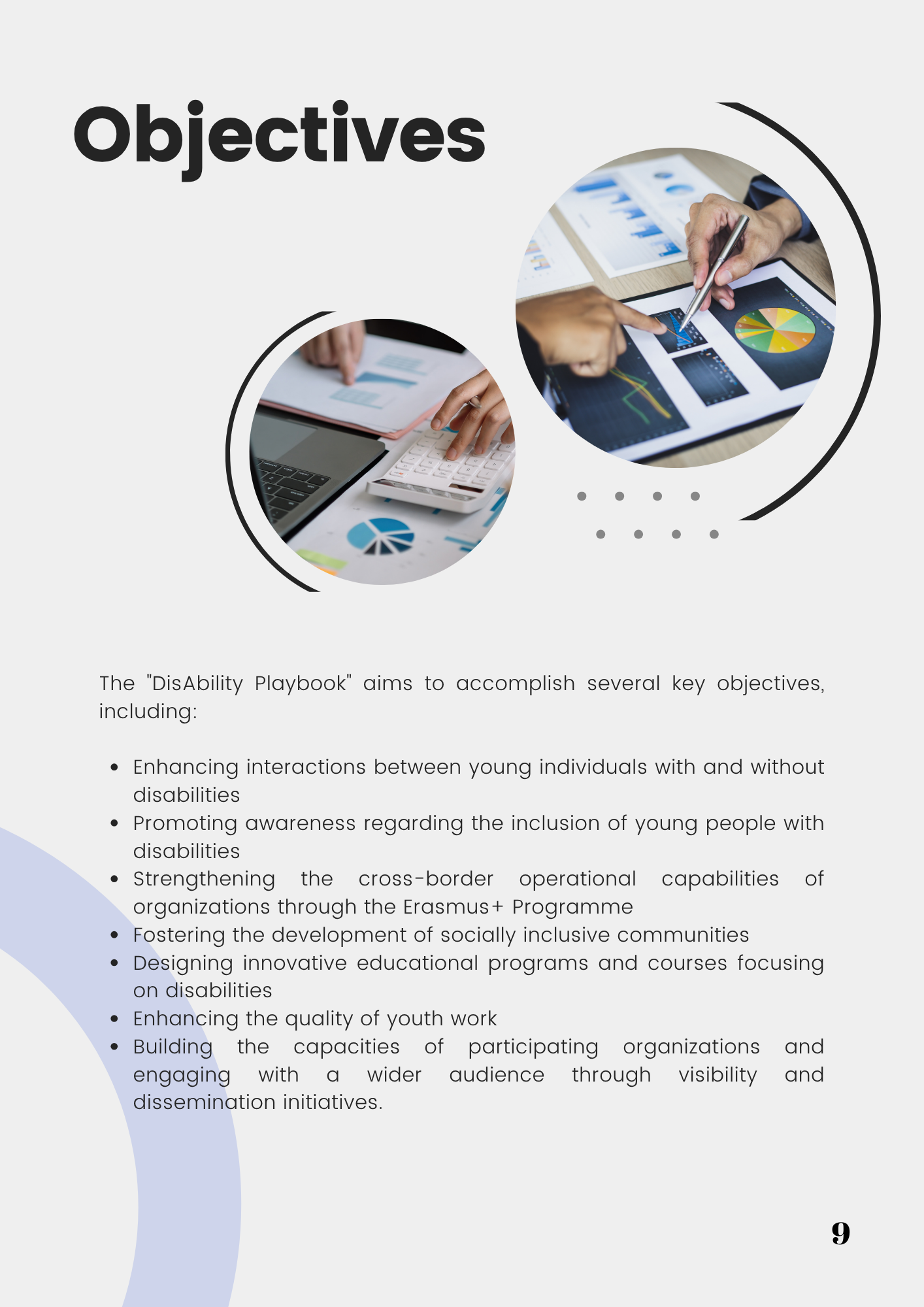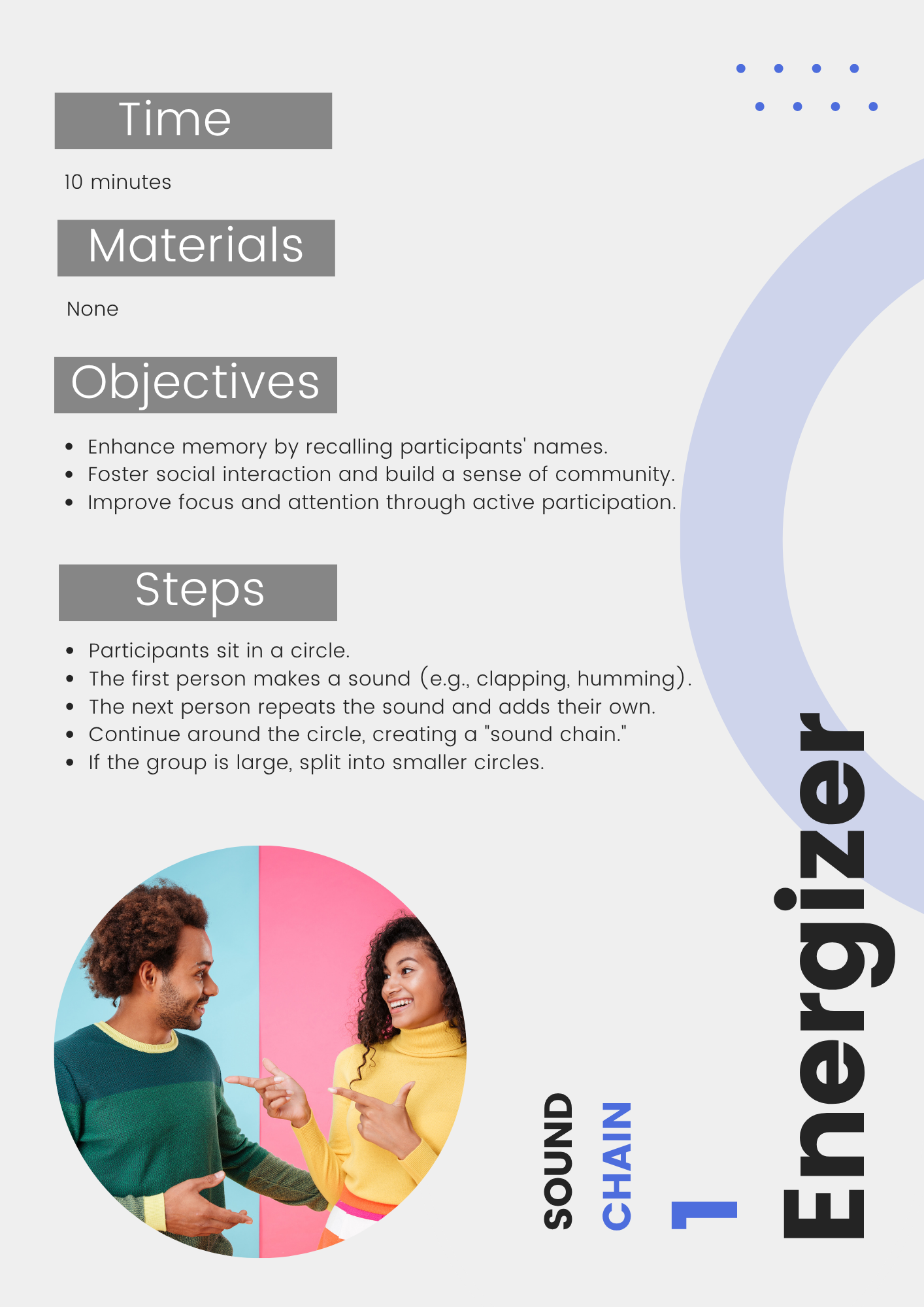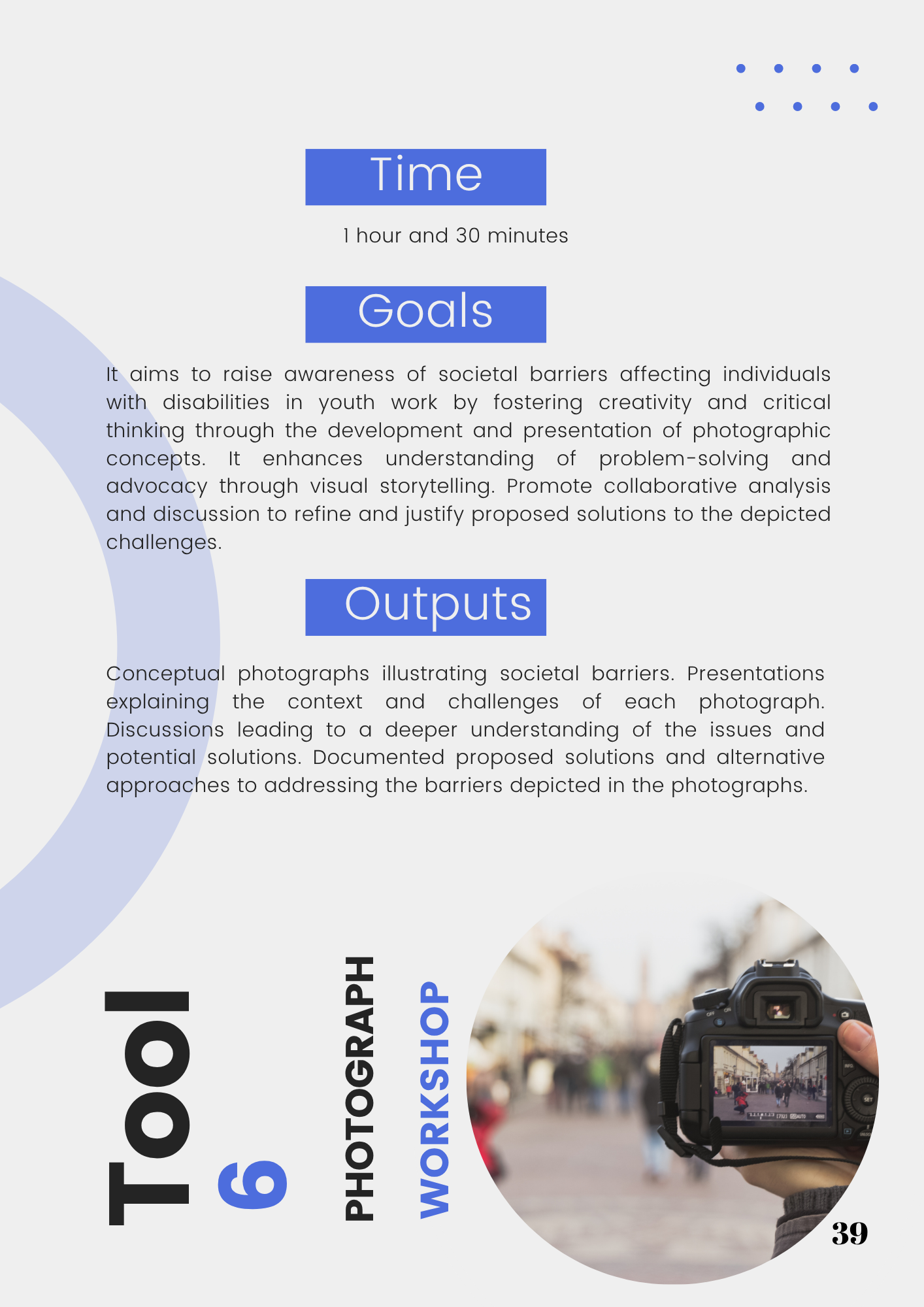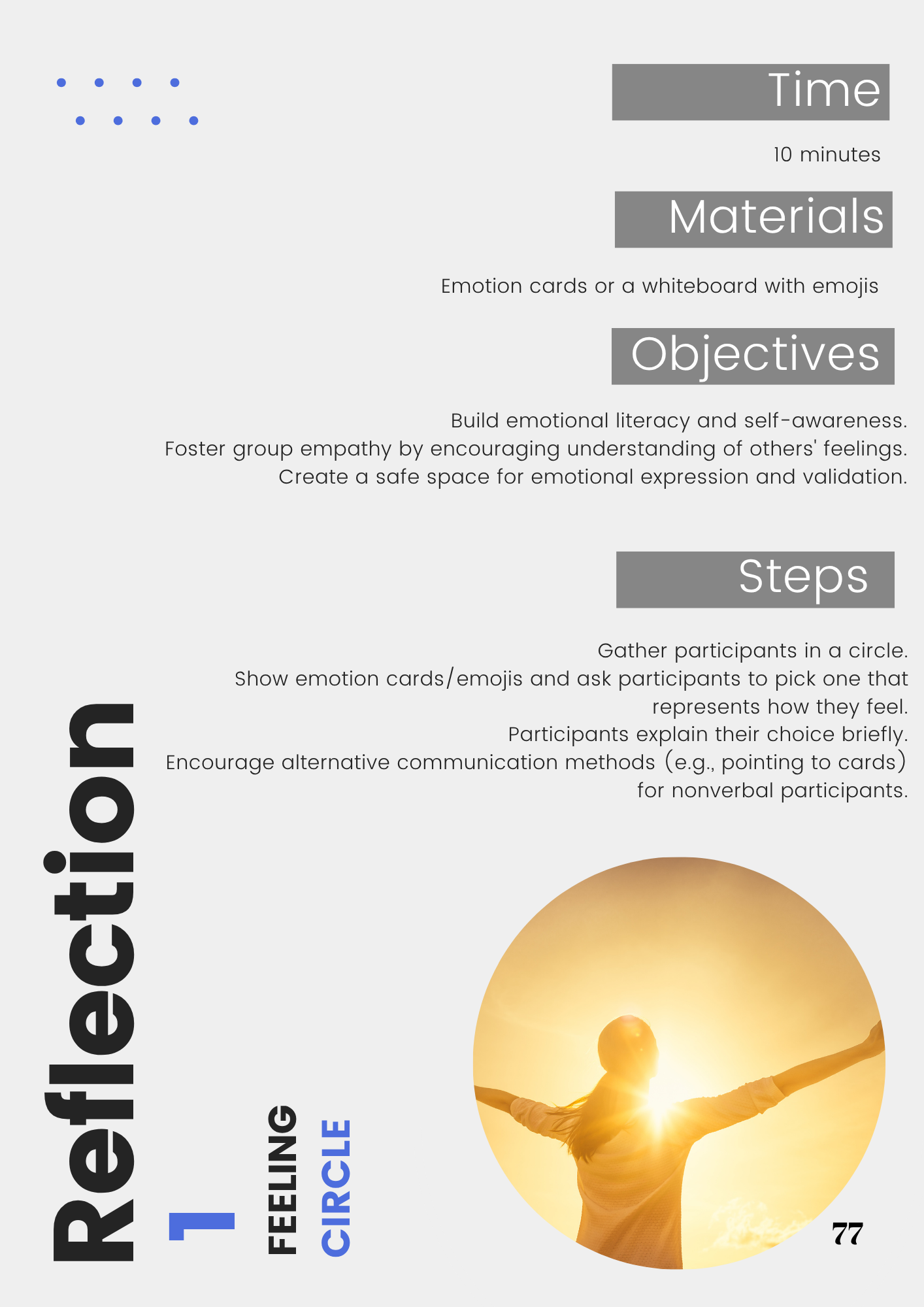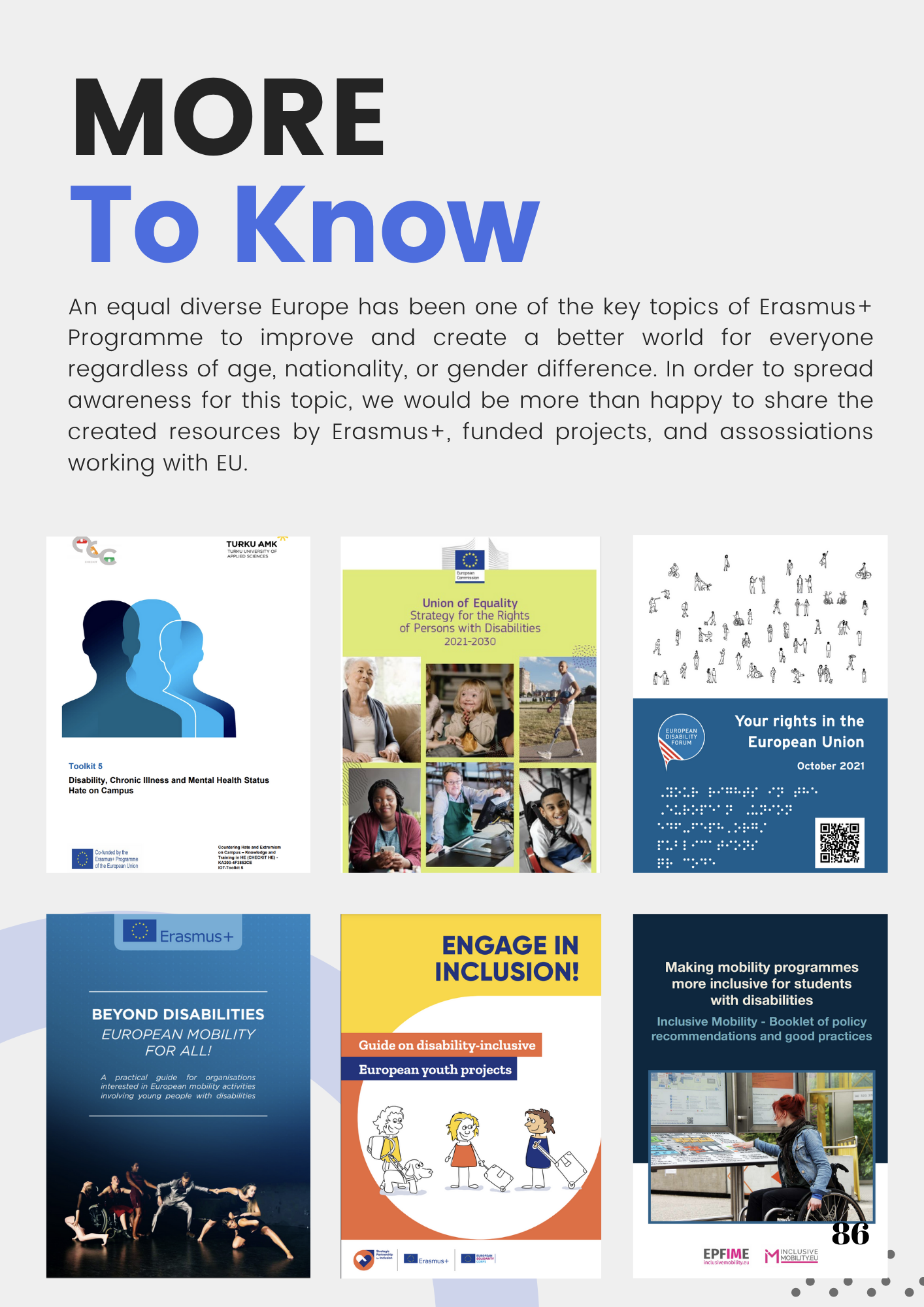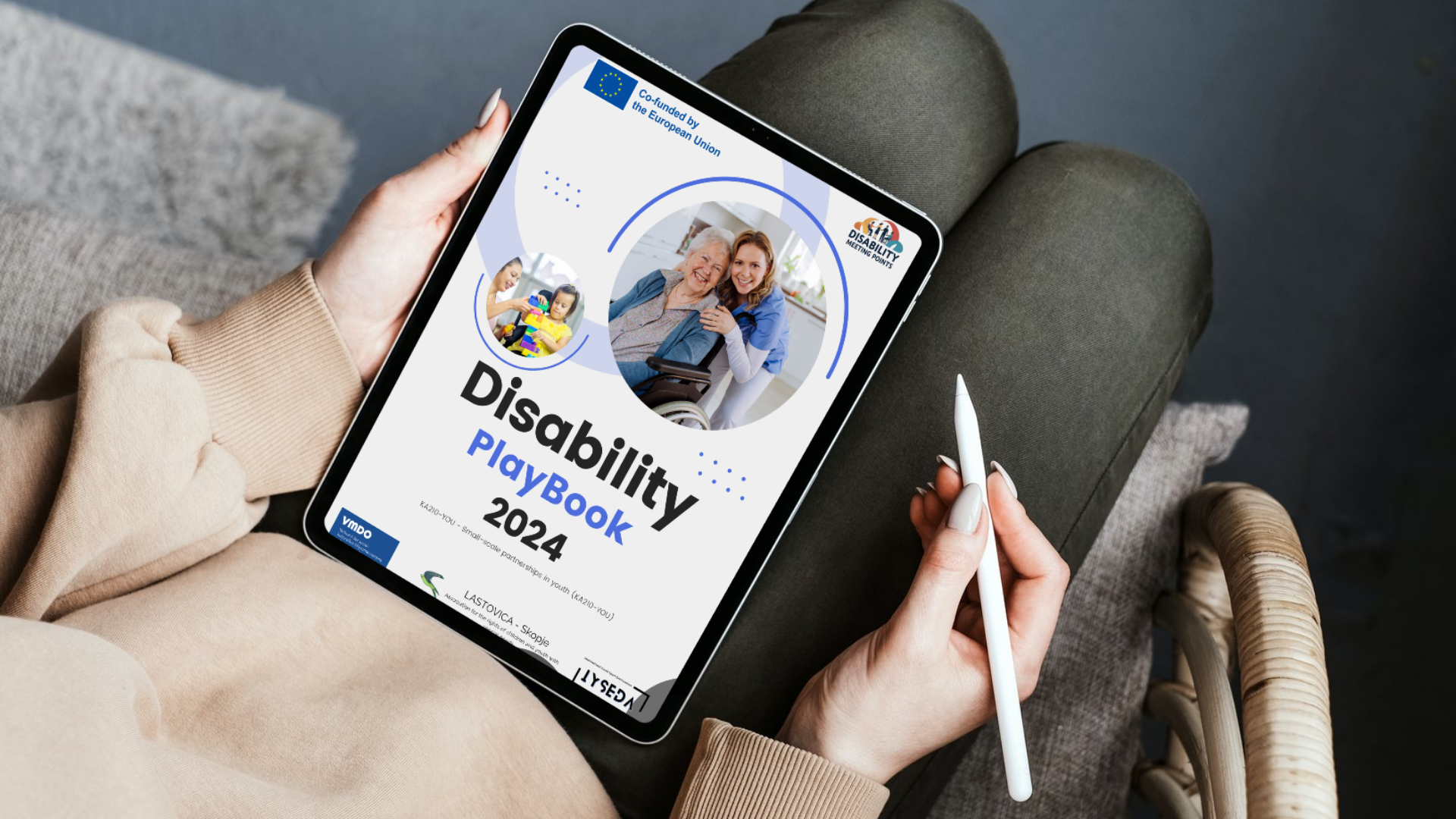An Impactful Resource
The DisAbility Playbook is the first key activity of the Disability Meeting Points project, implemented in a fully virtual format to ensure accessibility, cross-border collaboration, and flexibility. It laid the foundation for the entire project by defining inclusive values, gathering best practices, and producing a shared resource for the European youth work field.
Main Objectives
-
To collect and document inclusive youth work methods, tools, and tips;
-
To co-create a practical and accessible guide for youth workers and educators;
-
To promote digital collaboration and knowledge exchange among partner organizations;
Inside The PlayBook
- At least 21 activities tailored for youth workers and educators, focusing on inclusivity and interaction between individuals with and without disabilities.
- Promotes understanding of the barriers faced by persons with disabilities (PWDs).
- Provides methodologies to incorporate inclusivity into education and youth work.
- Addresses individuals with disabilities, caregivers, educators, employers, and policymakers.
- Encourages development of innovative educational courses on disabilities.
- Provides practical, easy-to-implement workshop structures.
- Available online, making it accessible for organizations and individuals worldwide.
How To Use
To make the most of the "DisAbility Playbook," it’s essential to grasp its structure, choose suitable tools, and execute its workshops and activities tailored to your target group's requirements.
1. Understand the Purpose and Goals
-
Become acquainted with the playbook’s objectives, which include fostering inclusion, raising awareness, and enhancing the quality of youth work.
-
Clearly identify your target audience (e.g., individuals with disabilities, caregivers, educators).
2. Explore the Tools and Activities
-
The playbook offers more than 21 tools divided into workshops and activities, including:
-
Inclusivity and Diversity Workshops: Aimed at promoting collaboration and understanding between individuals with and without disabilities.
-
Skill-Building Activities: Workshops focusing on life skills, mental health, financial empowerment, and more.
-
Creative Tools: Engaging activities like art therapy, storytelling, and music workshops designed to encourage creativity.
-
Review each activity or tool to comprehend:
-
Duration: Time needed for completion.
-
Goals: Objectives and anticipated outcomes.
-
Outputs: Tangible results such as presentations, discussions, or artwork.
-
Steps: Detailed instructions for implementation.
3. Select Activities Aligned with Your Objectives
-
For Promoting Inclusion: Start with workshops such as the Inclusivity Workshop or the Destroying Regional Barriers Workshop.
-
For Skill Development: Opt for the Life Skills Workshop or the Financial Empowerment Workshop.
-
For Raising Awareness: Engage in activities like the Disability Rights Awareness Workshop or the Pause the Video Workshop.
4. Prepare Necessary Resources and Materials
-
Gather essential tools: This includes flip charts, markers, devices for online tools (e.g., Canva, Trello), and any other materials specific to the workshop.
-
Ensure accessibility: Make sure the venue is accessible for individuals with disabilities, featuring elements like ramps, assistive technology, and sensory-friendly spaces.
5. Facilitate the Workshop or Activity
-
Follow the playbook: Adhere to the step-by-step instructions provided.
-
Encourage engagement: Promote active participation and collaboration among all attendees.
-
Adapt as needed: Modify activities to meet the specific needs of your participants, considering mobility or sensory requirements.
6. Document Outcomes and Share
-
Utilize templates: Use the provided formats or guides to record the results of each workshop, including flip charts, presentations, or photographs.
-
Share your findings: Disseminate these outcomes via social media or other platforms to raise awareness and motivate others to embrace inclusive practices.
7. Reflect and Enhance
-
Gather feedback: After the activity, collect insights from participants through discussions or surveys.
-
Reflect on experiences: Consider both successes and challenges to improve future implementations.
Categories
The PlayBook focuses on offering different types of tools to be useful for diverse settings:
- Energizers such as "Color Hunt", "Emoji Expression", "Pass The Clap",
- Workshop Tools such as "Art Therapy Workshop", "Pause The Video Workshop", "Life Skills Workshop",
- Reflections such as "Wheel Reflection", "Guided Visualisation", "Echo Reflection"
Some Pages are
